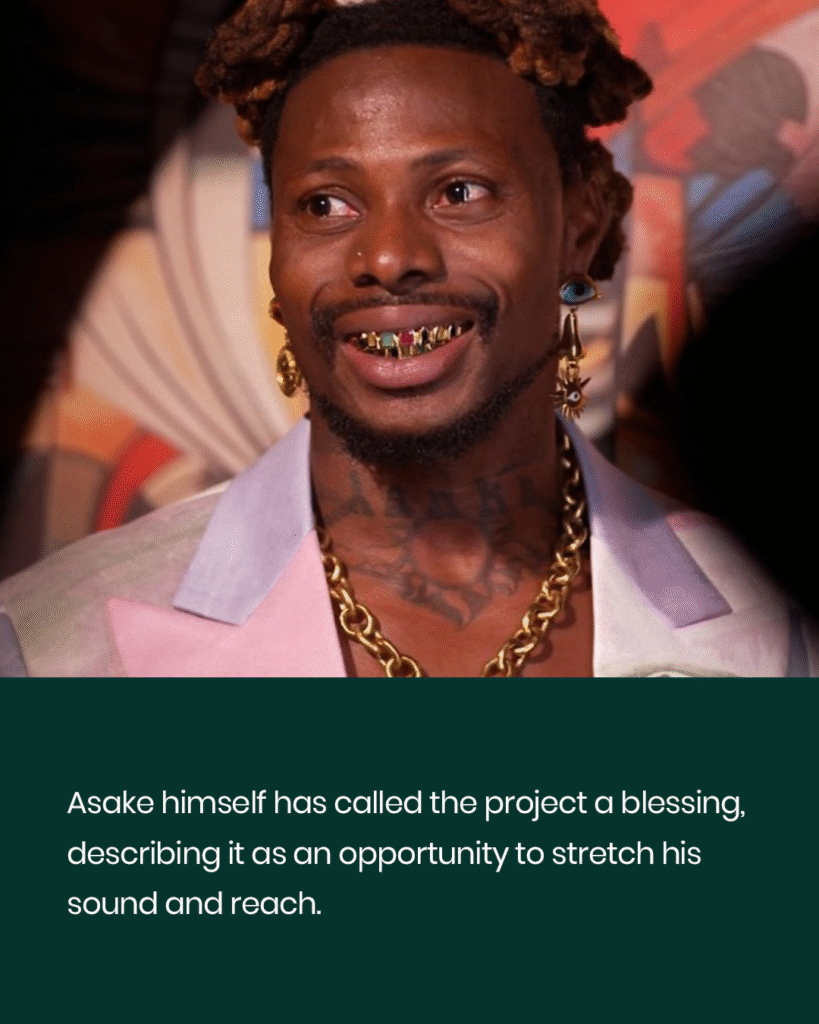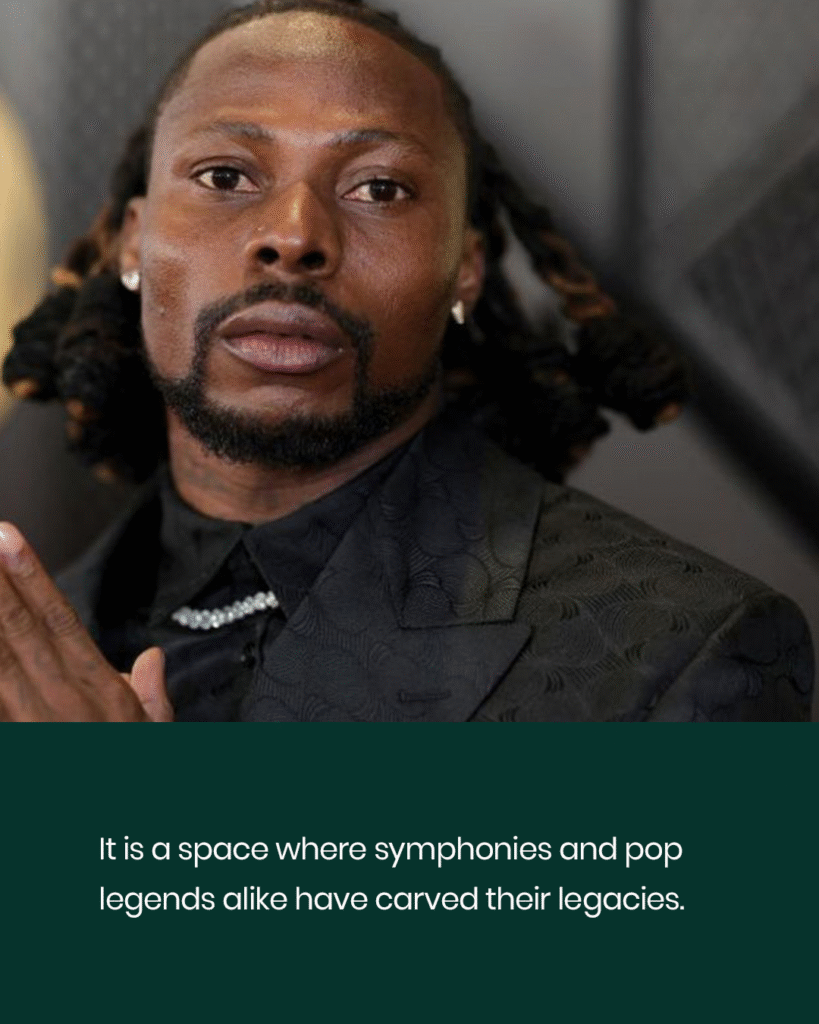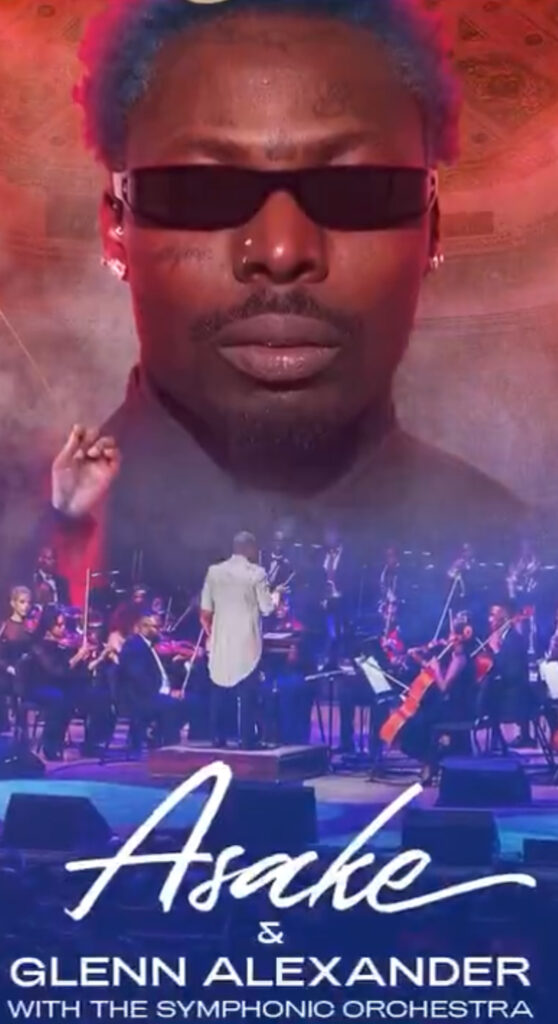When Asake steps onto the stage of the Kings Theatre in Brooklyn on 8 November 2025, it will be more than a concert. It will be a historic moment in the global rise of Afrobeats. The Nigerian superstar will become the first African artist to headline Red Bull Symphonic in New York, a performance series that has built its reputation on bold collaborations between contemporary music and classical orchestration.
For Asake, born Ahmed Ololade, the occasion is a new peak in a career defined by rapid ascent and relentless reinvention. In just a few years he has gone from Lagos breakout to international headliner, selling out arenas and topping streaming charts with a style that blends Yoruba lyrics, amapiano influences, and unmistakable vocal phrasing. The Brooklyn stage offers him an opportunity to present those songs in a form audiences have never heard before.

Red Bull Symphonic is not designed for half-measures. The concept demands that artists surrender their catalogue to the full weight of an orchestra. Beats are replaced with strings and horns, hooks are reimagined as orchestral motifs, and the energy of the music is reframed through cinematic scope. For Afrobeats, a genre built on rhythm and groove, this transformation is especially daring.
The choice of venue adds significance. Kings Theatre is a historic cultural landmark, with its ornate interior and acoustics that carry both intimacy and grandeur. It is a space where symphonies and pop legends alike have carved their legacies. Placing Afrobeats on that stage signals its recognition as a genre capable of carrying weight in the most formal of musical settings.
Behind the performance are two key figures: conductor Glenn Alexander II and orchestral arranger Anthony Parnther. Both are respected in classical and contemporary circles, bringing credibility to the project. Their task is delicate. They must preserve the urgency and pulse of Asake’s music while allowing the orchestra to expand its sonic canvas. Done right, it will highlight the depth of Afrobeats composition.

For Asake, the concert represents a strategic step in building longevity beyond the streaming era. Orchestral collaborations carry prestige and often attract new demographics, from older concertgoers to critics who rarely engage with club-driven genres. It is a way of placing Afrobeats on the global cultural map not just as a trend but as music with staying power.
This performance also highlights the commercial evolution of Afrobeats. The genre has grown from local parties in Lagos to international tours and Grammy recognition. Red Bull Symphonic in New York is a reminder that the movement is no longer peripheral. It is central to the global music conversation, commanding stages once reserved for Western acts.
For the audience, the night promises both familiarity and surprise. Hits like “Sungba” and “Peace Be Unto You” will not be abandoned but reimagined. Fans will recognise melodies, but the orchestral framing will expose textures hidden in the original production. It will be a test of how Afrobeats adapts to spaces far removed from its club and street origins.
Industry insiders will be watching closely. A successful show could open doors for other African artists to take similar opportunities. It may encourage orchestras and promoters worldwide to explore Afrobeats in formal concert settings, further blurring the lines between traditional and contemporary music.
Asake himself has called the project a blessing, describing it as an opportunity to stretch his sound and reach. His humility underscores what has been a central theme of his career: constant expansion without losing touch with his roots. For many fans, this concert will mark the moment he moved from star to cultural figure.

The night in Brooklyn will be a performance, but it will also be a statement. It says that Afrobeats belongs in every room where music is taken seriously, from sweaty clubs in Lagos to gilded theatres in New York. And it positions Asake as one of the artists most capable of carrying that message to the world.





No comments
This Red Bull Symphonic collaboration is a bold move that truly elevates Afrobeats. It’s incredible to see Asake’s music reimagined with such grandeur in a historic theatre like Kings. Glenn Alexander II and Anthony Parnther are doing a fantastic job balancing the energy of Afrobeats with the power of the orchestra. This isn’t just a gimmick; it’s a strategic step that proves Afrobeats is a global force worthy of this kind of platform. It’s exciting to see the genre break new ground and attract diverse audiences. Asake’s dedication to expanding his sound while staying rooted is inspiring. This performance isn’t just about the music; it’s a powerful statement about Afrobeats’ place in the global music landscape. It’s a must-see event that showcases the incredible depth and potential of the genre.